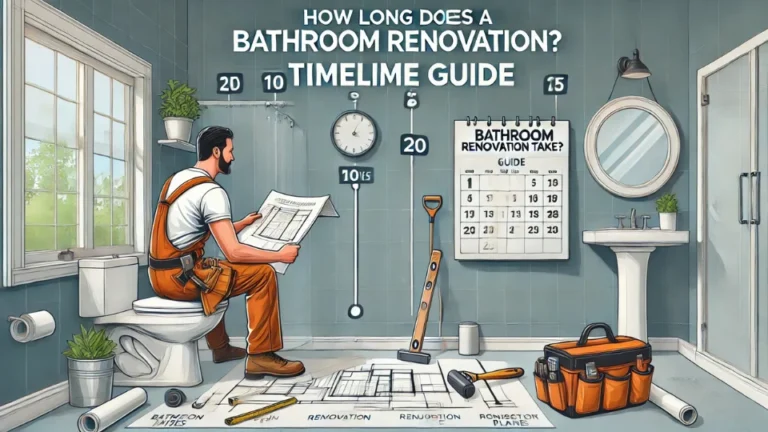Do I Need a Permit to Renovate My Bathroom?

Renovating a bathroom can be exciting, but it also comes with rules. One of the most common questions homeowners ask is whether they need a permit. The answer depends on the type of work being done and where you live. This article will break down everything you need to know about bathroom renovation permits.
Understanding Permits for Bathroom Renovation

Permits are official approvals from local authorities. They ensure that construction meets safety and building codes. These codes protect homeowners from unsafe electrical, plumbing, and structural work.
When Do You Need a Permit?
Not all bathroom renovations require permits. Here are some cases when you likely need one:
- Structural Changes – Removing or adding walls, changing the layout, or expanding the bathroom.
- Plumbing Work – Moving pipes, replacing major fixtures, or installing a new bathtub or shower.
- Electrical Work – Rewiring, adding new circuits, or changing outlets.
- HVAC Modifications – Installing new ventilation or moving ducts.
- Major Demolition – If you are tearing down parts of the bathroom beyond cosmetic updates.
When Is a Permit Not Required?
Some minor renovations do not require permits. These include:
- Replacing sinks, toilets, or faucets without altering plumbing.
- Installing new tiles, cabinets, or countertops.
- Painting walls or adding decorative features.
- Changing light fixtures without modifying wiring.
How to Get a Permit for Bathroom Renovation

If your project requires a permit, follow these steps:
Step 1: Check Local Regulations
Building codes vary by location. Visit your city or county’s website or call the local permit office. They will tell you what permits you need and how to apply.
Step 2: Submit an Application
Most permit applications require:
- A detailed project plan
- Drawings or blueprints
- Estimated costs and materials list
- Contractor details (if applicable)
Some cities allow online applications, while others require in-person visits.
Step 3: Pay Fees
Permit costs vary based on project size and location. Small projects may cost under $100, while large renovations can exceed $500.
Step 4: Schedule Inspections
Permitted work must be inspected to ensure compliance. An inspector will visit at different stages, such as after plumbing or electrical installations. Final approval is needed before you can fully use your renovated bathroom.
Consequences of Skipping Permits
Not getting a permit can lead to serious problems. Here’s what could happen:
Legal Issues
If your renovation violates building codes, you may face fines. The city might require you to undo the work or get a retroactive permit, which can be costly.
Safety Risks
Unpermitted work may not meet safety standards. Poor electrical or plumbing work can lead to hazards like fires, leaks, or mold.
Problems Selling Your Home
When selling a house, buyers often check for permits. If they find unpermitted work, it can lower your home’s value or cause financing issues.
Working with Contractors

Hiring a Licensed Contractor
A licensed contractor understands permit requirements. They can handle the application process and inspections for you.
Asking the Right Questions
Before hiring a contractor, ask:
- Do you have the necessary licenses?
- Will you obtain the required permits?
- Have you done similar projects before?
DIY vs. Professional Work

DIY Renovations
If you have experience, you may be able to do minor updates yourself. However, plumbing and electrical work should usually be left to professionals.
Professional Renovations
Hiring an expert ensures quality and compliance. Professionals also save you time and stress.
Frequently Asked Questions
Can I Apply for a Permit Myself?
Yes, homeowners can apply for permits. However, if a contractor is doing the work, they should handle it.
How Long Does It Take to Get a Permit?
Permit approval can take a few days to several weeks, depending on the project and location.
What Happens if My Renovation Fails Inspection?
You will receive a list of required fixes. Once corrected, you can schedule a re-inspection.
Do I Need a Permit for a Small Bathroom Makeover?
Not if the changes are cosmetic, such as painting or replacing fixtures without moving plumbing or electrical wiring.
Can I Get a Permit After Work Has Started?
Some cities allow retroactive permits, but they may involve extra fees and inspections.
Conclusion
Before renovating your bathroom, check if you need a permit. Doing so ensures your project is legal, safe, and up to code. Whether hiring a contractor or doing it yourself, following permit rules will save you trouble in the long run. Always consult your local authorities for the most accurate and up-to-date information.











